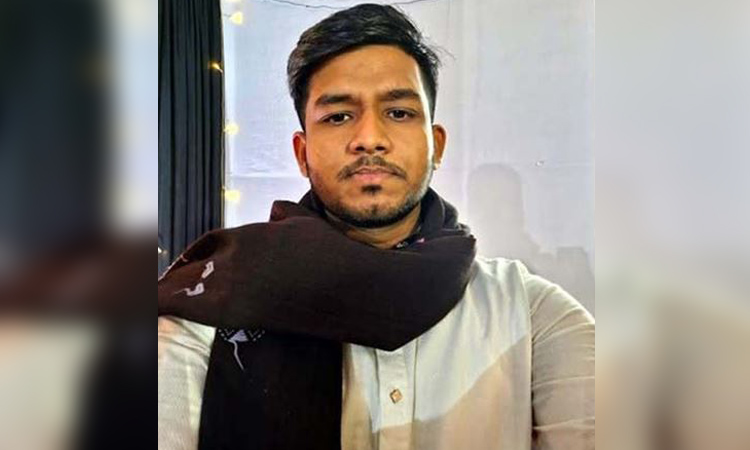News Flash
News Flash

BARISHAL, April 29, 2025 (BSS) – Family of Maruf Hossain is passing their time without their beloved son as he embraced martyrdom during the student-led mass uprising.
Nineteen-year-old Maruf Hossain was a student at Kazir Hat Ekota Degree College in Mehendiganj upazila of the district. He was fatally shot dead during the 2024 July Uprising.
Talking to BSS, grief-stricken Idris expressed his endless anguish over losing his eldest son.
“My son Maruf used to choose my Eid clothes for the last several years. Thus, I spent the whole Eid day this year waiting for him,” Idris said in tears despite knowing that his son will never return.
Recounting his son’s memories, he said Maruf was a good cricketer and a fitness enthusiast with big dreams.
“But a brutal bullet fired by the fascist government's force ruined all his dreams,” Idris said with the voice weighed down with grief.
Maruf was shot in the stomach on July 19 while participating in the anti-discrimination student movement in Dhaka’s Badda area. Later, he succumbed to his bullet injury.
He was the eldest among their three brothers. His younger brother Md Imran Hossain (15) studies in class nine, and his youngest brother Md Jonayet Hossain (10) is in class four.
Maruf had been living with his family in Dhaka’s Badda area. Apart from continuing his study, he used to assist his father’s event management work.
“Maruf used to help me manage event contracts. After his martyrdom, I hardly get the work because actually he used to secure most of the jobs,” Idris said in an emotion choked voice.
Recounting the memory on the morning of July 19, he said Maruf left home around 8 am and returned home for lunch in the afternoon.
Maruf had been closely involved with the student movement, especially after the martyrdom of Abu Sayeed in Rangpur, Idris said, adding, after lunch, Maruf and his maternal uncle joined the movement together.
“Around 5.45pm, I got a call from his uncle that Maruf had been shot. At first, I didn’t want to believe it,” he said, adding, amid ongoing police firing, he rushed to the spot and rescued Maruf in a bloodied state.
At that time, Idris recalled, Maruf’s fellow protestors tried to get an ambulance to transport him, but they were initially refused. After an argument, an ambulance finally took Maruf to a local hospital and then to Dhaka Medical College Hospital (DMCH).
He remembered that on their way to DMCH, ruling party members and law enforcement agency personnel stopped the ambulance on Rampura Bridge.
“Despite Maruf being alive, with oxygen support and asking for water, they delayed the ambulance. They even poked my son’s gunshot wound with a rifle butt,” Maruf’s grieving father recalled.
Finally, Idris managed to get his son to DMCH by rickshaw, but upon arrival at the emergency department, he was asked to sign the death certificate.
“That’s when I realized—my son was no more,” he wailed.
Getting Maruf’s body from the hospital was another ordeal for Idris. He had to run between police stations for clearance. When he finally reached the DMCH morgue with clearance from Rampura Police Station, he found Maruf’s body buried under three others.
“I identified my son by his feet. But while handing over three bodies, when they learned that Maruf was a student, they refused to hand over his body,” Idris recalled his plight to get his son’s body.
The next day, he said, Maruf’s body went missing from the morgue. After searching multiple times in every corner of the DMCH, Idris found his son's half-decomposed body dumped at the burn unit ground.
Three days later, after post-mortem was completed, they took Maruf’s body home and buried him in a graveyard in Badda, Dhaka.
Demanding justice for Maruf’s killing, his father said, “My son sacrificed his life for the country. His blood drenched the streets. Those, who opened fire at the people and killed them during the July-August uprising, must be brought to justice.”